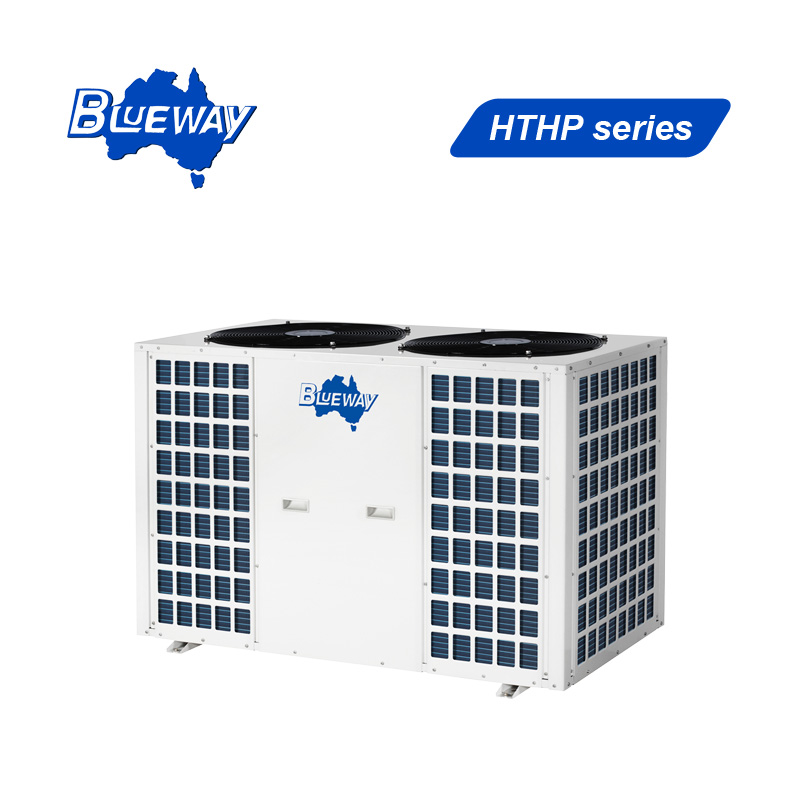Hot Water Heat Pump: An Efficient and Sustainable Solution for Heating Water
2025-03-21
As global awareness of environmental sustainability grows, more and more homeowners and businesses are seeking energy-efficient alternatives for their heating needs. One such solution that has been gaining popularity in recent years is the hot water heat pump. Known for its energy efficiency and reduced environmental impact, a hot water heat pump is becoming a go-to option for both residential and commercial water heating.
In this blog, we’ll explore how hot water heat pumps work, their benefits, applications, and why they are a smart investment for the future.
What is a Hot Water Heat Pump?
A hot water heat pump is a device that heats water by transferring heat from the surrounding air or ground into a water storage tank. It works in much the same way as a refrigerator but in reverse. Instead of cooling air inside, the heat pump extracts heat from the outside environment, even in cold conditions, and uses it to warm the water in the system. This process is much more energy-efficient than traditional electric water heaters, which generate heat by directly using electricity.
Hot water heat pumps typically consist of three main components:
1. Evaporator – where heat is absorbed from the environment (air or ground).
2. Compressor – increases the pressure and temperature of the heat absorbed.
3. Condenser – transfers the heat to the water, raising its temperature.
The result is a highly efficient water heating system that uses renewable energy from the environment to provide hot water.
How Does a Hot Water Heat Pump Work?
The operation of a hot water heat pump follows a four-step process:
1. Heat Absorption: The heat pump extracts heat from the air or ground outside using an evaporator coil. Even when the air temperature is low, the heat pump can capture ambient heat.
2. Compression: The captured heat is transferred to a refrigerant, which is compressed by the compressor. This raises the temperature and pressure of the refrigerant.
3. Heat Transfer: The hot refrigerant is then circulated through a heat exchanger, where it transfers the heat to the water in the tank. As a result, the water is heated to the desired temperature.
4. Cooling and Recycle: After transferring the heat to the water, the refrigerant cools down and is returned to the evaporator to start the process again. The cycle is continuous, providing a reliable source of hot water.
Benefits of a Hot Water Heat Pump
1. Energy Efficiency
The most significant advantage of hot water heat pumps is their energy efficiency. Unlike traditional water heaters that directly generate heat using electricity or gas, heat pumps use the existing heat in the environment to heat the water. This allows them to produce three to four times more energy than they consume. For every unit of energy used by the heat pump, it can generate three to four units of heat energy, making it one of the most efficient water heating solutions available.
2. Reduced Carbon Footprint
As the energy efficiency of hot water heat pumps translates into less electricity consumption, they help reduce carbon emissions. By using ambient air or ground heat, which is a renewable energy source, the environmental impact of heating water is significantly reduced. This makes hot water heat pumps a sustainable alternative to conventional electric or gas-powered water heaters.
3. Cost Savings
Although the initial investment in a hot water heat pump may be higher than traditional systems, the long-term cost savings are substantial. Due to their high efficiency, hot water heat pumps consume less energy, which can lead to lower electricity bills. Over time, the savings on energy costs will often outweigh the higher upfront cost of installation. Additionally, some regions offer incentives and rebates for installing energy-efficient systems, further reducing the initial expense.
4. Environmentally Friendly
A key selling point of hot water heat pumps is their minimal environmental impact. Since they use renewable energy from the environment, there is little reliance on fossil fuels. Moreover, the refrigerants used in modern heat pumps are designed to be environmentally safe, helping to further reduce the carbon footprint of the system.
5. Constant Hot Water Supply
Hot water heat pumps can provide a consistent and reliable supply of hot water. With the ability to operate efficiently over long periods, they ensure that users always have access to hot water without interruption, making them ideal for homes or businesses with high water demand.
6. Low Operating Noise
Unlike conventional water heaters, which may make loud noises when in operation, hot water heat pumps are designed to operate quietly. The compressor and other components are built with sound-reduction features, ensuring that the system remains unobtrusive and won’t disturb the peace of your home or business.
7. Durability and Longevity
Hot water heat pumps are built to last. With fewer moving parts compared to conventional water heaters, they are less prone to wear and tear. Many units come with warranties of up to 5-10 years, making them a reliable long-term investment for heating your water.
Applications of Hot Water Heat Pumps
1. Residential Use
In homes, hot water heat pumps are a cost-effective and eco-friendly solution for heating water. They can be used for a variety of applications, including showering, cooking, laundry, and general household use. Given their energy efficiency, they are especially beneficial for larger households or homes with high hot water demand.
2. Commercial and Industrial Use
For businesses and industries that require large amounts of hot water, such as hotels, restaurants, hospitals, and laundromats, hot water heat pumps provide a highly efficient and reliable solution. They can be used to meet the hot water needs of large-scale operations while keeping energy costs low and ensuring a continuous hot water supply.
3. Swimming Pools
Hot water heat pumps are also commonly used for heating swimming pools. By drawing heat from the air or ground and transferring it to the pool water, these systems offer an energy-efficient way to maintain a comfortable swimming temperature, especially in colder climates.
Considerations When Choosing a Hot Water Heat Pump
When selecting a hot water heat pump, several factors should be considered:
- Climate: Air-source heat pumps are most effective in moderate climates. In extremely cold regions, ground-source heat pumps may be a better option due to their higher efficiency in low temperatures.
- Size and Capacity: Make sure to choose a heat pump that matches your household or business's hot water demand. A unit that is too small may struggle to keep up, while one that is too large may lead to wasted energy.
- Installation Location: Air-source heat pumps require adequate space for air circulation. Ensure the unit is installed in a well-ventilated area to optimize its efficiency.
- Energy Efficiency Rating: Look for a model with a high Coefficient of Performance (COP) rating, which indicates how efficiently the heat pump converts electricity into heat energy.
Conclusion
A hot water heat pump is an excellent solution for anyone looking to reduce energy consumption and carbon emissions while enjoying a reliable supply of hot water. Offering significant energy savings, a reduced environmental footprint, and long-term durability, these systems are ideal for both residential and commercial use. By harnessing renewable energy from the air or ground, hot water heat pumps provide an efficient and sustainable alternative to conventional water heaters. Whether for a home, business, or industrial application, a hot water heat pump is an investment that pays off in both the short and long run.



